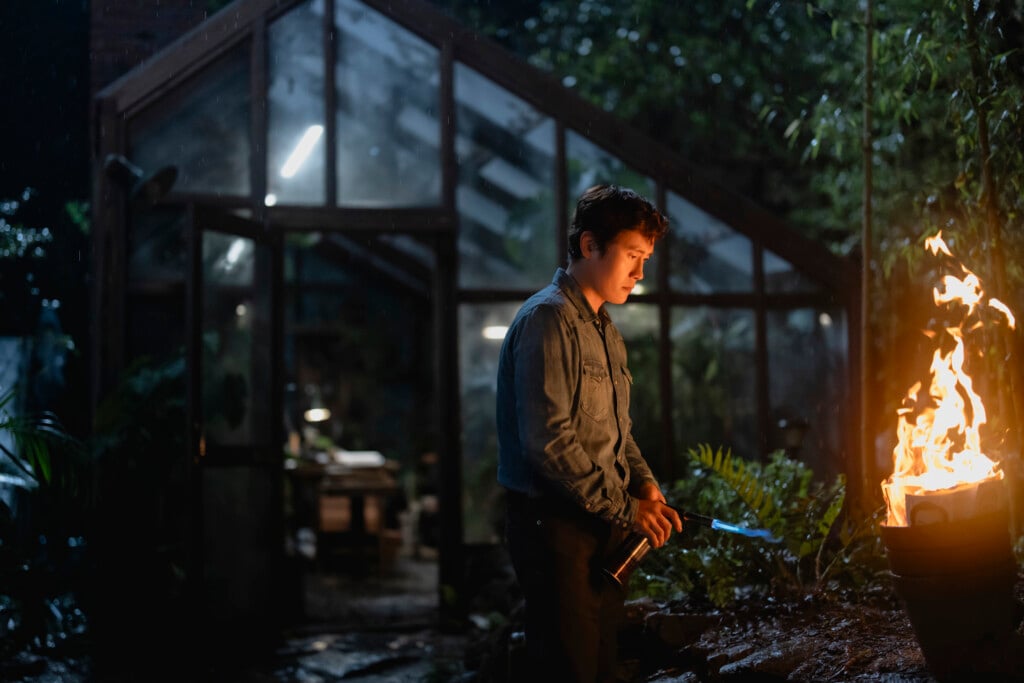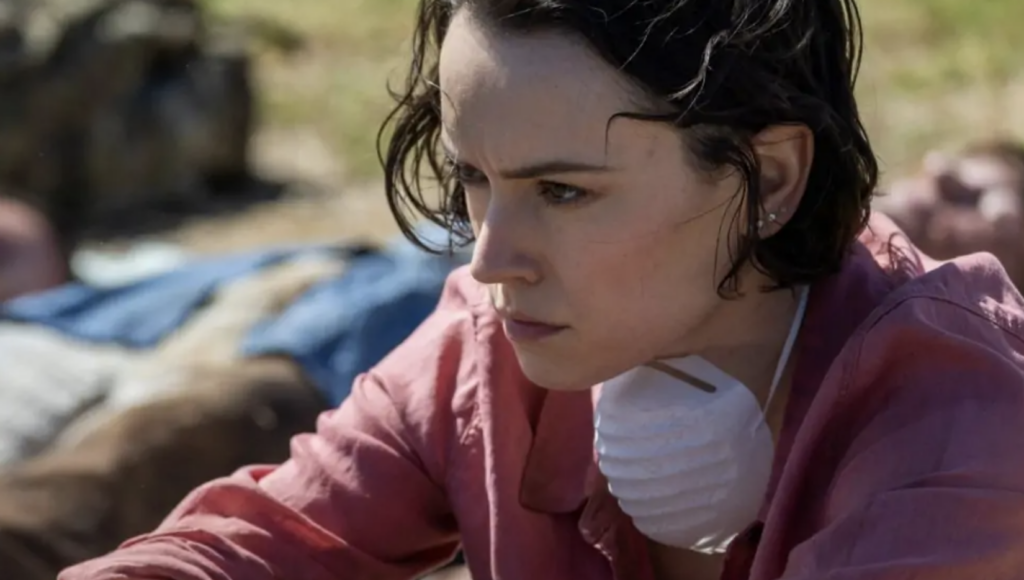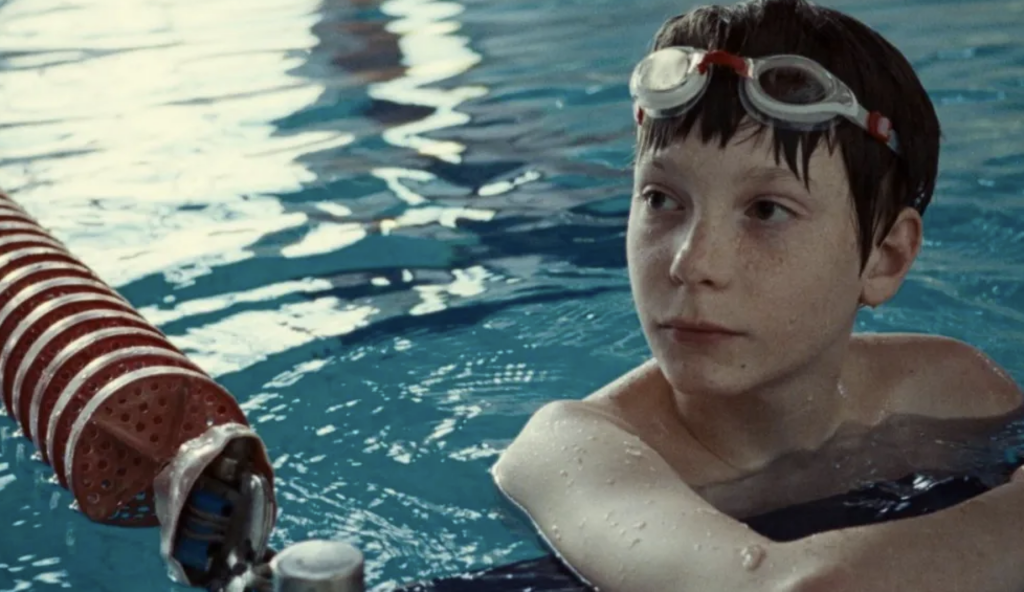2025’s uneven Wolf Man claws and stumbles toward a better film
Leigh Whannell’s follow-up to The Invisible Man has good intentions, but isn’t up to the challenge of meeting them.
At some point during Leigh Whannell’s Wolf Man, the first stanza of Philip Larkin’s poem “This Be the Verse” popped into my head and wouldn’t stop repeating. Even if you don’t know the poem itself, you probably know these oft-quoted lines:
“They fuck you up, your mum and dad.
They may not mean to, but they do.
They fill you with the faults they had,
And add some extra, just for you.”
Whannell’s fourth feature, and his second time updating classic Universal monsters for modern-day audiences is, like The Invisible Man before it, about toxic masculinity and its effects. Whannell’s 2020 triumph examined partner abuse, the difficulties of extricating oneself from an abuser and having their experiences believed.
His 2024 follow-up is about the passing of toxic masculinity from father to son, and how it can manifest almost like its own form of genetic illness.
Wolf Man has some fascinating (and wonderfully icky) depictions in this regard, but unfortunately, getting there is about as messy as its lead character’s lycanthropic transformation.
We first meet Blake Lovell as a kid growing up in the Oregon wilderness with his strict survivalist father Grady (Sam Jaeger). Grady clearly cares about his son, but his methods in trying to teach him how to live in the woods often come alongside erratic and harsh behavior. While on a hunt, Grady and Blake encounter a strange creature in the woods — one Grady is certain is fabled missing hiker the local indigenous population claims has “the face of the wolf.”
As an adult, Blake (Christopher Abbott) is a city-dweller who’s intentionally avoided his dad’s macho, self-reliant lifestyle. He has a wife, Charlotte (Julia Garner), a journalist. Blake, a writer who’s “between jobs,” is a happy stay-at-home girl dad to their daughter Ginger (Matilda Firth), delighting in carrying big pink teddy bears and letting his little girl put lipstick on him for fun.
Blake gets word that Grady has finally been declared dead after a long disappearance and takes the family to clear out his dad’s house — the first time he’s returned to the area in years. Wouldn’t you know it, there’s still a dangerous critter roaming around, and it’s out for blood. After it attacks Blake, he starts exhibiting frightening symptoms while simultaneously trying to protect his wife and child from whatever it is (hint: it’s in the title) that’s trying to get into the house — the very monster he himself is becoming.
Once Abbott’s Blake starts to transform into exactly what his dad wanted to protect him from, Wolf Man expertly uses sound design, perspective and effects to create memorable body horror moments that left the preview audience at Screenland Armour squirming and gasping in their seats.
The subtle perspective shifts between how the transformed Blake perceives his family and how they see him make an empathetic outward commentary on Blake’s inner struggle to be a better man than his dad was, while falling into similar traps through different means.
It’s in the buildup to those moments (which are worth seeing) that Wolf Man falters.
At 103 minutes, it’s a potentially epic story with a pace that clips along too fast before arriving at the action, as if the trappings surrounding the scares are errands the movie has to run rather than context that would make those horror sequences more effective. Perhaps because its themes were so baked in and easily communicated, The Invisible Man had no trouble gracefully incorporating action, character and subtext from the start. The themes in Wolf Man are subtler and muddier. They take time to develop that Whannell doesn’t invest, despite the film’s repeated references to The Shining, a (much longer) movie that offers a master class in doing just that.
This issue leads to stilted dialogue early on, that’s more confusing than stage-setting. It’s not helped by the fact that Abbott and Garner — each excellent performers individually — don’t work as a married couple. Abbott is grounded and committed from the start. Garner, who has less to work with as the under-written Charlotte, never seems present, and suffers most of all from the film’s lack of interest in creating a natural setup. These characters are supposed to be married professionals trying to make their union work, but Blake and Charlotte could be strangers plopped next to each other on a bench and given a kid they’re told is theirs.
Wolf Man’s strengths make it worth watching, and perhaps, could even afford it some cult status down the road. What works really works. It’s just a shame that it’s surrounded by drama that’s never given the space it needs to make us care about these characters and their dynamic as a family.
The ideas in Wolf Man, like Larkin’s poem, are all easily identifiable. The execution, when it’s not related to horror setpieces, needs work.






